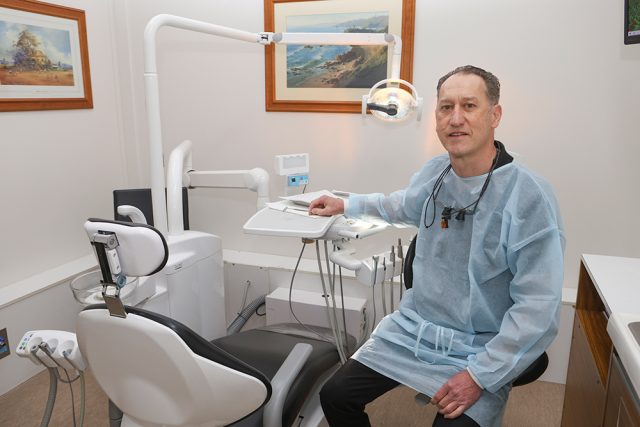Last year, hundreds of Australians were diagnosed with oral cancer. This Oral Cancer Awareness Month, experts are on a mission to see this change.
According to Penrith Dentists’ Dr Anthony Boyden, oral cancer is one that people rarely know about, and rather get a bit frightened by when they hear the phrase for the first time.
“It’s something right in their mouth where people have phobias of already, and people have phobias about areas that they can’t see and control,” he said.
“I also think the recent couple of years with John Farnham made a lot of people really nervous, when his diagnosis was made.”
Oral cancer describes a number of cancers that start in the region of the mouth, most commonly occurring on the lips, tongue and floor of the mouth, but also possible in the cheeks, gums, roof of the mouth, tonsils and salivary glands.
Though he said it’s outside of his skillset to diagnose the illness directly, rather referring his patients to an Oral Medicine Specialist or an Oral Surgeon when he spots something he’d like to have checked out, Boyden said that dentists play an incredibly important role in ensuring that it’s made.
“Initially, we have to try to catch things either in a pre-cancerous stage, or in the earliest stage of cancer, so that we reduce its progression and stop it becoming more serious,” he said.
As far as signs and symptoms go, Boyden said there are a few things he’s looking out for.
“The most common signs and symptoms would be a lump in the mouth that hasn’t gone away, or an ulcer which has been there for a couple of weeks and isn’t healing like normal,” he said.
“Other things we look for would be a red or a white patch of tissue in the mouth. Sometimes these red or white patches have a roughened surface, and aren’t smooth and silky like the normal skin in your mouth.”
Less common factors include loose teeth, gums that bleed, a lump in the next, and numbness around the mouth.
There are also a few key risk factors that heighten your chance of getting oral cancer, and a new one possibly emerging.
“The main causes of oral cancer are smoking and excessive consumption of alcohol. There’s other things like hereditary factors, and these days, while it hasn’t been proven, there’s some concern that the vaping, with its carcinogenic properties, may in the future be a possible cause of oral cancer,” he said.
But, Boyden said that the demographic of patients seems to be changing, noting that everybody should be aware – even people with no teeth can get oral cancer.
“The Chris O’Brien Lifehouse held an international survey that they coordinated in the Asia Pacific region, and as far as cancers of the tongue are concerned, in women under 45 in the last 32 years, there has been a 385 per cent increase in the incidence of cancers of the tongue, in women under 45, and this is a concern because we don’t know why it’s happening,” he said.
Though there are a few things you can do to reduce the likelihood of getting oral cancer, Boyden emphasised that the key to getting early potential identification, and early treatment, is to see your dentist at least annually, even if there’s no pain.
“With the normal check, just to make sure they haven’t got holes or gum disease, at the same time, just have an inspection of the soft tissue to make sure that anything else that’s happening is checked out,” he said.
“Dentists have a responsibility to be the first line of examination and assessment, and to follow that up if there’s any doubt.”

Cassidy Pearce
Cassidy Pearce is a news and entertainment journalist with The Western Weekender. A graduate of the University of Technology Sydney, she has previously worked with Good Morning Macarthur and joined the Weekender in 2022.

